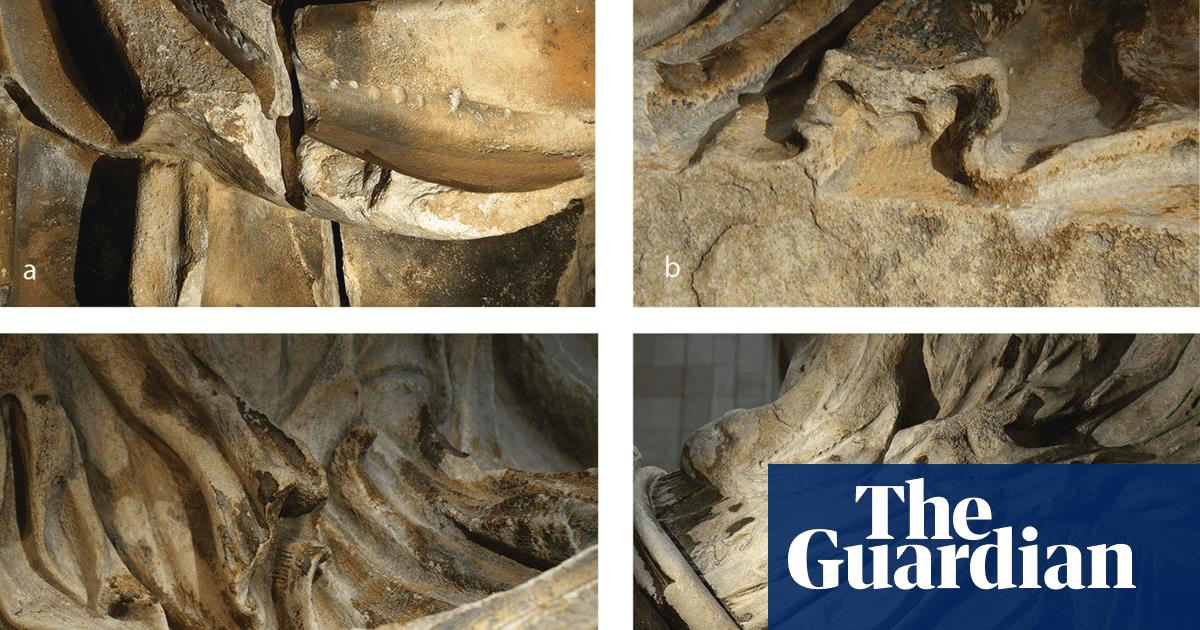
The extent of Boris Johnson’s U-turn on the Parthenon marbles has been laid bare in a 1986 article unearthed in an Oxford library in which the then classics student argued passionately for their return to Athens.
Deploying language that would make campaigners proud, Johnson not only believed the fifth century BC antiquities should be displayed “where they belong”, but deplored how they had been “sawed and hacked” from the magisterial edifice they once adorned.
“The Elgin marbles should leave this northern whisky-drinking guilt-culture, and be displayed where they belong: in a country of bright sunshine and the landscape of Achilles, ‘the shadowy mountains and the echoing sea,’” he wrote in the article, republished by the Greek daily, Ta Nea, on Saturday.
“They will be housed in a new museum a few hundred yards from the Acropolis. They will be meticulously cared for. They will not, as they were in the British Museum in 1938, be severely damaged by manic washerwomen scrubbing them with copper brushes.”
Last month the British prime minister told his Greek counterpart that the carvings – part of a monumental frieze regarded as the high point of classical art – were legally acquired and must remain in London. About half of the artworks are exhibited in the British Museum.
The Greek premier, Kyriakos Mitsotakis, has reinvigorated the campaign to have them reunited with the rest of the frieze in Athens.
Published in Debate, once the official magazine of the Oxford Union Society, Johnson’s 978-word article offers indubitable proof of how sympathetic he was as a young man to the Greek cause. Since going into politics, the Tory has rebuffed any notion of repatriation. In a 2012 letter, shared with the Guardian, the then mayor of London acknowledged that while, ideally, the sculptures should have remained in situ, their removal from the British Museum would amount to “grievous and irremediable loss”.
In November, a No 10 spokesperson said: “It is the longstanding position of the prime minister and the UK government that the Parthenon sculptures were acquired legally in accordance with the law at the time.”
The article, which is not available online and might have languished in obscurity had it not been for Ta Nea’s London-based correspondent, Yannis Andritsopoulos, discovering the magazine in the Oxford library – is testimony to how big his about-turn has been.
Johnson, who was 21 at the time, penned the polemic before a visit to the Oxford Union by Melina Mercouri, the Greek culture minister who first raised the issue of the marbles’ restitution.
As president of the union, the classicist had invited Mercouri, a celebrated former actor, to be the main speaker at a debate on 12 June 1986, entitled: “This house believes that the Elgin marbles must be returned to Athens.”
It was a fiery speech that would see her win the vote.
The Debate article laid the groundwork for the event. In it, Johnson sided with Mercouri, debunking the notion that Lord Elgin had lawfully acquired the statuary as England’s ambassador to the Sublime Porte and even going so far as to accuse the British government of “sophistry and intransigence”.
“Powerful forces will cause her [Mercouri] to fly to Britain. They are on the one hand the passionate national feeling of the Greek people, and on the other the sophistry and intransigence of the British government,” he wrote. “And caught between these forces is, not a sack of old balls, but the supreme artistic treasure of the ancient world. The debate on 12 June will mark the climax of a renewed campaign by the Greek government to restore to Greece the sculptural embodiment of the spirit of the nation.”
Johnson also had some choice words for Elgin, saying the Scottish peer had not only exploited the “near anarchy” of the times to remove the pieces when Greece was without voice as a “tumbledown outpost of the Ottoman empire”, but had sought to obtain them to amuse his “young and skittish wife” who had “a pampered girl’s insatiable desire for presents”.
“It was in the Acropolis that he realised he had found a few things that might amuse her. Manipulating Turkish dependence on Britain for military support, he secured from the Sultan a firman to remove ‘qualche pezzi di pietra’ – a few pieces of stone – that happened to be lying about on the Acropolis,” the young Johnson wrote.
“Elgin’s interpretation of this phrase was liberal to say the least.”












